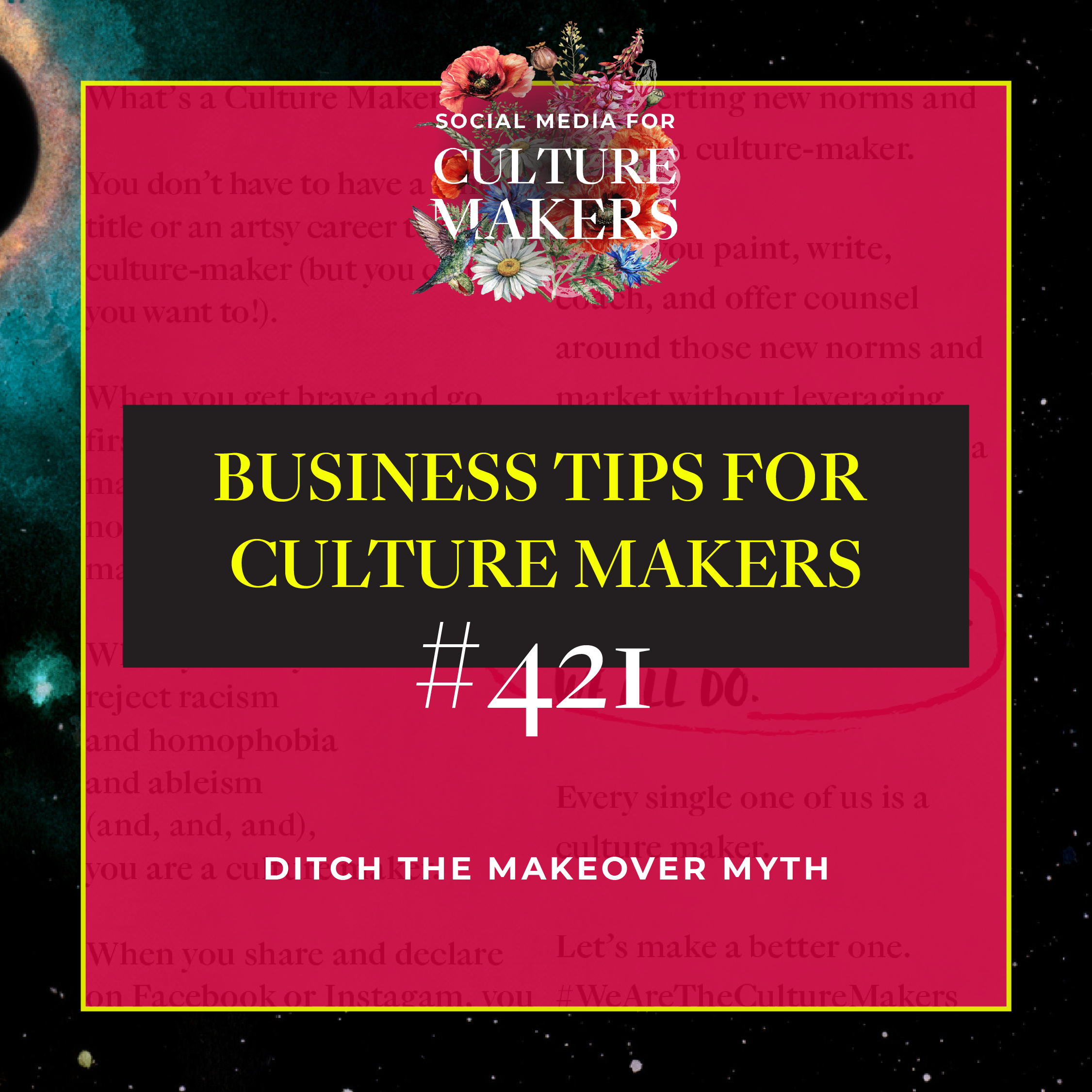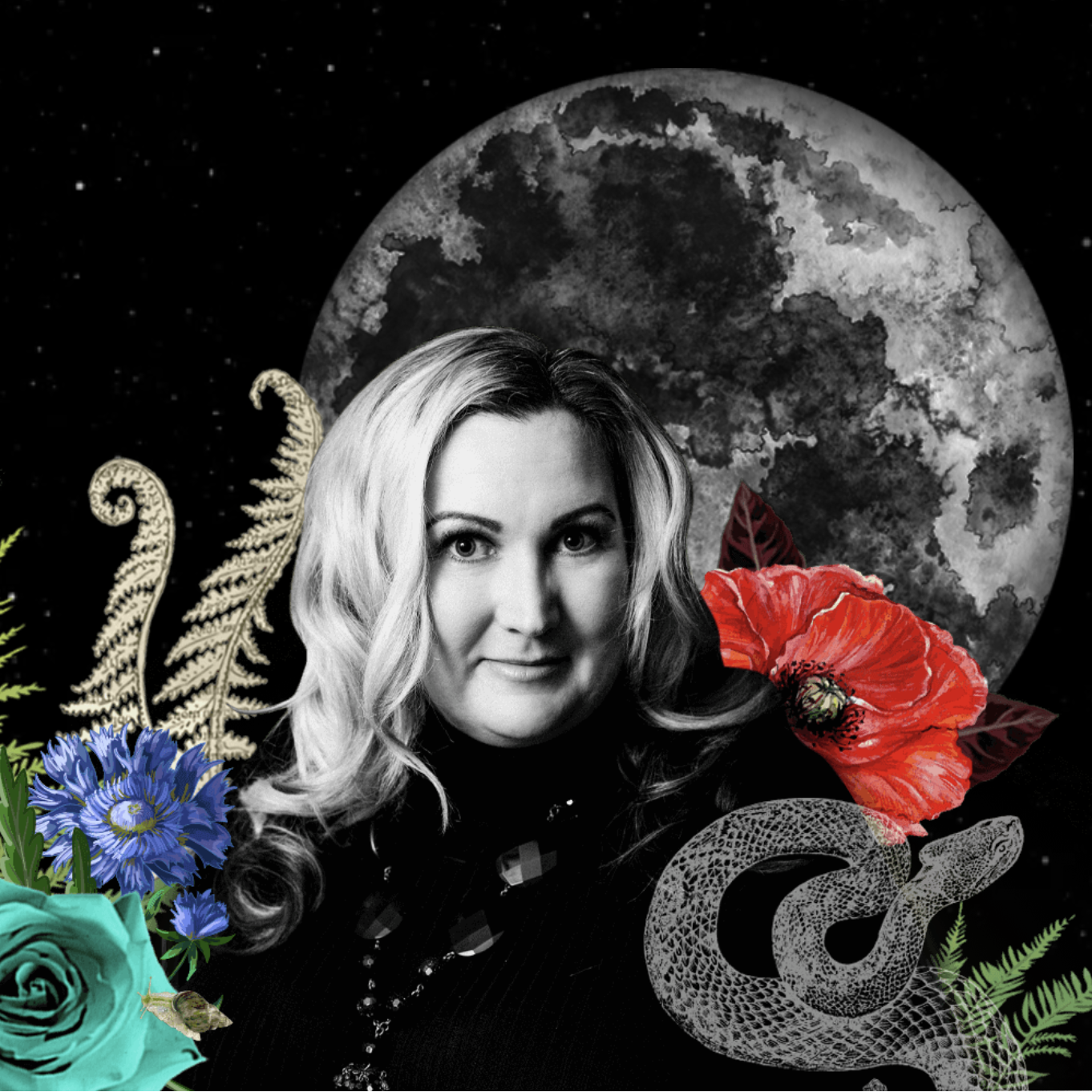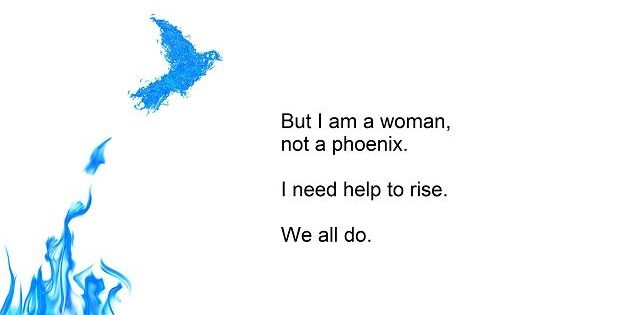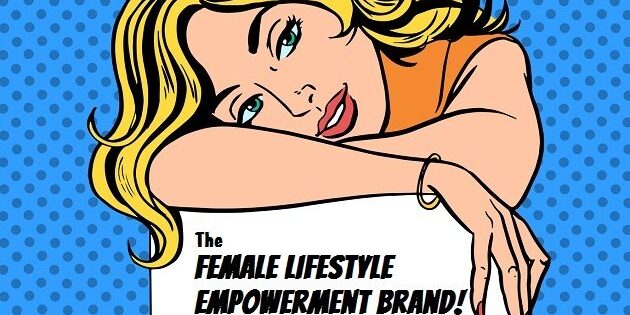
Business Tip for Culture Makers #421: Ditch the Makeover Myth

One of the things I worry about, as a progressive, pro-democracy, pro-human rights, culture-making entrepreneur living in a world increasingly dominated by right-wing mindsets and authoritarian politics, is the way our online business models depend on manufacturing authority — often by signalling privilege, wealth or social status.
To me, that looks a lot like using the spoils of oppression to create personal profit.
That reinforces the oppression we otherwise oppose…
…and, no.
I also worry about the way many of us are uncritically accepting the need to manufacture “authority”.
I absolutely want us to show up as fully credible, and build trust, and say the things that need to be said. I want us to take up our rightful space and be visible to our customers and in our culture.
That’s not “manufacturing authority”. That’s creating bodies of work and fully occupying our knowledge and results.
But the online business model that teaches us to “manufacture authority” is specifically not concerned with your body of work or your knowledge or the years of practice. It’s concerned with signalling to people that you’re someone to obey, so they’ll buy from you. It is specifically designed to help someone with no previous experience or training in their new online venture APPEAR to be substantial.
By teaching us how to manufacture authority — often by using prestige — it’s teaching us how to replicate the Donald Trump-version of leadership: pure optics. All brand, no work.
It’s also conditioning our readers and customers to make high-risk decisions about high-price programs based on subconsciously-receive authority/privilege cues.
If they’ll do that for 10K programs, why wouldn’t they do that with their vote?
Sidenote: I’ve written about this before in these essays:
- the link between our buying habits and our vote
- On the ‘Mental Triggers’ of Online Marketing, The Female Lifestyle Empowerment Brand, Assessing Who Deserves Your Money, and Why We Should Be Skeptical of Makeover Stories
As consumers and as citizens — and as culture-making marketers — I want us to reduce the number of decisions we make (or provoke) based on privilege signals, unjust hierarchy, and obedience.
A business model that’s premised on constructing the appearance of authority (rather than substantive leadership) to automatically and unconsciously trigger obedience in the form of sales has a personal and social cost for consumers and citizens. It can disadvantage us, materially, and habituate us in obeying authority even when it is only loosely signaled. That’s a serious social problem because it reinforces the disempowering and authoritarian dynamics that fuel oppression and constrain our lives.
So it’s urgent, to me, that we take a look at how our own business copy and processes may be contributing to authoritarian norms and conditioning…and stop doing that.
That’s what this culture-making marketing tip is about: reviewing our copy for the tactics that manufacture faux authority… and jettisoning them.
And replacing it with material that lets us shine for all the right reasons.
But first, let’s think about these two paragraphs from Jeff Walker’s online marketing book, Launch:
People tend to follow others in positions of authority. Think about doctors in their white coats. For most of us, as soon as we see that white coat walk into the examination room, a certain part of us becomes deferential. We listen to what the doctor has to say and take any advice seriously. We probably feel at least a little intimidated to disagree with anything the person in that white coat says.
This isn’t unusual. We often look for others to help guide our decision. Like so many other mental triggers the authority trigger helps us shortcut the decision-making process…
If you want to be more influential in your business and marketing, it pays to be seen as an authority. And the good news is that it can be shockingly easy to create authority.”(61; emphasis mine)
Basically, to garner the benefits that accrue to authorities (in this case, sales and profit) all you have to do is signal authority – like with the white coat. Or a flashlight and a pose:
When I was a teenager in high school, I learned a very important lesson about authority. Three of my friend and I were driving home after a school football game – just like few hundred other people – and got stuck in a traffic jam in the parking lot. There were so many cars trying to get out the exit that no one was moving at all. One of my friends, who understood a lot more about authority than I did, found a flashlight rolling around on the floor of the car and immediately knew what to do. He jumped out of the car, turned on the flashlight, and started directing traffic Actually, he didn’t really direct traffic; he mostly just walked in front of our car and waved us forward through the congestion. Seeing the flashlight’s beam, other drivers made way for our personal “traffic director” and we drove right out of the parking lot. The only authority he had to direct traffic came from the flashlight. But people saw that flashlight, and they assumed he was in a position of authority. And I learned a big lesson that night: It doesn’t take very much to create authority. (61; italics mine)
Authority, in Walker’s understanding, is getting people to do what you want them to do, and doing things that primarily benefit you. His friend, for example, did not create a way out of the parking lot that benefited all the drivers following his orders. Instead, he got other drivers to follow instructions so that the car he was traveling in could advance faster than the others. His authority signals advantaged him at the expense of the people who cooperated and complied. There was no mutual gain there. There was exploitation.
That’s the process for manufacturing authority — imitate it using symbols that get people to obey you even if you don’t actually have the training or earned expertise to warrant such respect — underlying Jeff Walker’s launch formula.
(Because Jeff Walker’s Launch formula is the foundation of most online marketing models, it in turn underlies many, many, many of the business models of our most respected Female Lifestyle Empowerment Brands.)
Most online marketers have been trained to selling products, courses, services by signalling this kind of hierarchical and empty authority. The manufactured authority in this online marketing model contains lopsided benefits that accrue to the “authority” and reinforces an authoritarian dynamic that most culture-making entrepreneurs are otherwise seeking to challenge.
In the launch/FLEB model for online marketing, there are specific places and ways you can signal and manufacture this kind of authority.
In conventional online marketing, here’s where you do it:
- In your About page
- In your sales videos when you’re launching a product
- In collateral or ads when you’re launching a product (Here’s an example of a FB ad/dark post with a makeover story)
In conventional online marketing, here’s how you do it:
- With a rags-to-riches or makeaover story.
The way Walker teaches online entrepreneurs to manufacture authority – especially if an online entrepreneur does NOT have any forms of credibility, like 10,000 hours of hands-on practice, years of training, proven results, decades of devotion to a practice or in-depth knowledge – is with a rags-to-riches or makeover story.
The first installment of Walkers’ launch sequence is literally the “I was just like you” story. I was just like you, our new wannabe authorities will tell us, I was broke, struggling, ugly, unfulfilled, lonely, and then I discovered X. I became a whole new person! I can teach you, too!
(Again: this FB ad appears to follow this model to a letter.)
This kind of story seems empowering to both parties, because it waves at our lived experiences which matter, but it actually betrays a fundamental contempt for the client.
The message from authority to follower is arguably this: you are broken. You are unacceptable. You need to be fixed. I was just like you and it was horrifying.
It’s contempt, pure and simple, and that same client contempt arguably gives entrepreneurs permission to construct authoritarian and psychologically manipulative sales funnels that disproportionately advantage sellers over buyers.
So when you see leaders – especially established ones who’s how-I-got-started story is far in the past – using makeover stories and rags-to-riches stories, lean in and ask yourself why they’re using those stories rather than telling you about their deep expertise and the tangible benefits and outcomes of their work.
For example: you never hear Oprah telling her rags-to-riches story anymore. Why would she? She has so many more creases in her shoe leather by now. Now she talks about her cable network, her accomplishments, her knowledge. On the very last page of every O magazine she tells us what she knows for sure.
To inhabit and promote your true and substantial body of work – leadership, knowledge, devotion, training, lived experience – tell us what you know and do, not how you used to be just like us (while implying we’re disgusting).
Which brings us back to this Culture Making Marketing Tip: Prune Your Copy of Makeover Stories
Check your about page, work-with-me page, introduction email, and sales pages and launch videos for the rags-to-riches makeover story. When you find them, expand the frame. Show all the frames.
Here are some things to do instead of telling the makeover story:
- Document the full scope of your lineage and excellence.
- List your influences, teachers and mentors (here’s an example of Nisha Moodley doing that, comprehensively and beautifully)
- List your qualifications.
- Talk about your process and fully honour it.
- Develop terms of distinction and terms of art to describe your process and use them. Write a glossary and a methodology page. There’s a logic and process for what you do. Map it out for us.
- Tell us why you do this work and what it means to you.
- And yes, tell us your story or stories, without shrinking it to fit into a generic and manipulative Cinderella narrative.
Showing all the frames and telling the whole story — rather than the abbreviated, collapsed, too-small makeover story — is especially important for marginalized peoples because the mainstream cultural narratives presumes our incompetence.
Resisting that assumption by documenting our lineages and claiming our excellence and attention is how we push back and claim the space we’re often systematically denied.
So your mission, should you choose to accept it, is to review your copy and weed out makeover stories –and in its place, regale us with you whole story. Tell us about you, your lineage and your body of work.
A longer, more substantial About Page and a longer story is not going to alienate a potential client. It’s going to give them more reasons to trust in your credibility and work with you. Because you’ve done the work and you’re showing the work.
AND it undermines the privilege-signalling and authoritarian dynamics we, as culture-making entrepreneurs, oppose. Win!
************
You Might Also Like:



